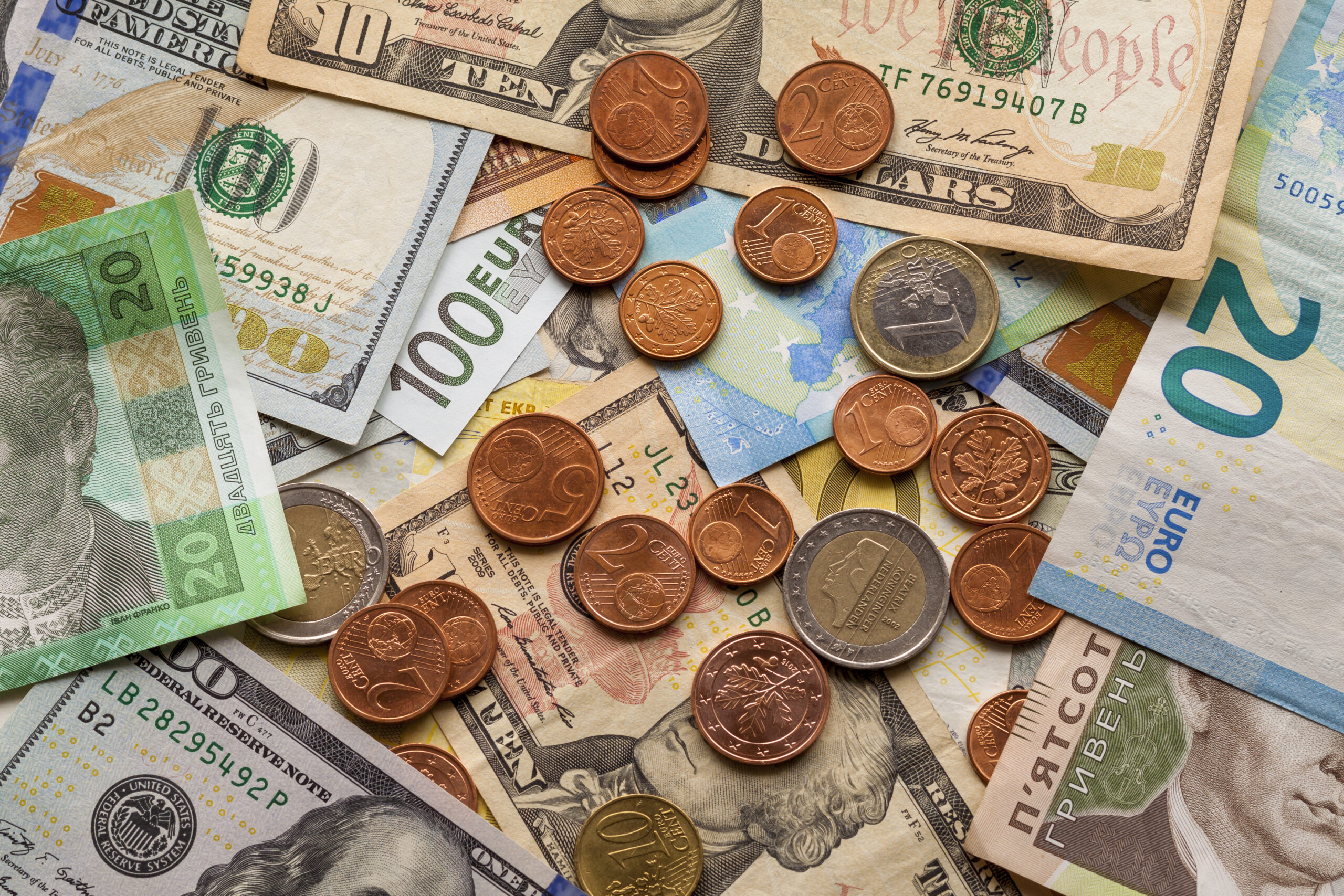Currency exchange is one of the first hurdles you’ll face when you move abroad to study. If you’re not careful, unfavorable exchange rates and hidden fees could cause you to exhaust your funds sooner than you budgeted.
However, there are many tips and strategies for saving money on currency exchange. We will discuss the most important ones in this guide.
We’ll also guide you through the currency exchange process and explain how to choose the best currency exchange provider.
What is currency exchange for studying abroad?
Currency exchange is the act of converting your money from your home country’s currency to that of the destination country. So, for Indian students going abroad for their higher education, currency exchange means converting the currency from INR to the currency used in the destination country.
The most commonly used mechanisms of currency conversion are:
- Forex cards
- International bank transfers (transfer of money from a bank account in India to a bank account with a foreign bank)
- Converting money from INR to a foreign currency in cash form and carrying it for immediate expenses upon arrival to a foreign country
Each method has its advantages and can be chosen based on your specific needs and circumstances.
As a student traveling abroad, when you exchange currency, you will encounter an exchange rate. This rate determines how much of the foreign currency you will get for your INR. You must note that this exchange rate is decided by the bank/financial service provider you use for the conversion. This means you will always get an amount (after conversion) slightly less than what you would expect if your calculations are based on the exchange rate you see on Google.
During this conversion, certain obvious and hidden charges reduce the effective currency value that students get after the conversion. This “leakage” of value may continue – depending on your chosen mode of conversion – because of factors like service fees, commission charges, high ATM withdrawal charges for foreign currency, etc. With some research and knowledge, you can keep these hidden costs to a minimum.
Why do students have to exchange currency?
When you study abroad, the biggest part of your expenses is your tuition fee. In most cases, your bank directly transfers this fee to the university.
However, as soon as you arrive in a foreign country, you need to spend money in the local currency of that country. So, right from the moment you land at the airport, till the time you are fully settled, you need ready access to foreign currency.
Here are some key expenses you are likely to face during the first two weeks of your stay:
- Transportation from the airport
- Temporary accommodation
- Food and groceries
- Local SIM card
- Initial supplies
- Public transportation
That’s why many students exchange some of their home currency for cash before traveling, so they can avoid frequent currency conversions.
Next, let’s understand the currency exchange process.
Process for currency exchange for studying abroad
Here’s the process of currency exchange for studying abroad.
Choose methods to exchange currency
The method you select to exchange currency will greatly affect the rates you get, and the fees you pay.
Some common methods include:
- Major banks offer currency exchange services but often with higher transaction fees.
- Currency exchange bureaus at airports are convenient but usually have higher conversion fees.
- Online exchange services often have more competitive rates but are in disrepute for levying hidden fees.
- Prepaid Forex cards can be an economical, secure, and convenient option as they let you lock in exchange rates at the time of conversion
Compare providers
Since exchange rates fluctuate, research and compare different currency exchange providers to find the best rates and lowest fees.
If you’re looking for the lowest forex charges in India along with an education loan, FundRight is a great solution. On FundRight, you get the lowest interest rates on study abroad loans, along with value-add services like forex, with conversion charges that are lower than banks.
Set up your account
After choosing a provider, set up your account with them. Pay any upfront fee if needed, submit your documents, such as your passport, ID, PAN, confirmed air tickets, a valid copy of your visa, and a college acknowledgment letter, and apply for the provider’s services.
Make the exchange
After your application is accepted, you can load your funds. For bank transactions, visit the bank to complete the process and obtain a receipt. For online platforms, ensure you keep digital copies of your transaction details.
Manage your funds
Keep track of your spending to ensure you have enough money for your entire stay. Use apps like Mint or PocketGuard to monitor your expenses.
How to choose the best currency exchange provider?
Many currency exchange providers in India claim to offer the best rates and services. To ensure thorough research, and to choose an authentic and reliable provider, follow these steps:
Research and compare
Always compare exchange rates, fees, and service speed across multiple providers to find the best deal. You can even use online platforms like Reeudo, ThomasCook, and EasyTransfer, which might offer better rates and convenience.
Ask about any hidden fees or charges
Before you exchange your money, ask about any extra charges or hidden fees. Some providers might advertise zero-fee exchanges but charge a high-security fee or commission. So always compare rates and fees to get the best deal.
Customer service
Choose a provider that is easy to access. Whether it’s a local bank or an online service, it should have 24/7 customer service to assist you with emergency funds or lock your account if it is misused.
Verify authenticity
To avoid scams and fraud, cross-check whether the provider is licensed and authorized by the Reserve Bank of India. In case you are abroad and want international currency exchange providers, stick to well-known banks, government-approved exchange offices, and online platforms with good reviews and ratings.
The above points ensure that your money is safe and you’re getting the most value for your currency exchanges. In the next section, we share some tips that can help you save money during currency exchange.
Tips for students to avoid currency exchange scams
- If an exchange rate seems way better than what banks or reputable exchange bureaus are offering, it’s probably a trap. Scammers often lure you in with amazing rates, and then trick you with hidden fees or counterfeit currency.
- Don’t exchange money with people on the street in any situation.
- Scammers may try to distract you while counting your money or use sleight of hand to shortchange you. Stay focused and always count your money carefully before leaving the exchange counter.
- Ask fellow students or your university’s international office for recommendations on the best way to exchange currency.
- Just like at home, never share your debit card PIN or one-time passwords (OTPs) with anyone.
Need help figuring out the best way to exchange your money? Talk to us! We know it can be confusing, but we’re experts at helping Indian students like you who are going abroad for studies.
Get in touch with a GradRight expert today. We can answer any questions you have about exchanging money, managing your money in a new country, or anything else you need to know about moving abroad.
FAQs
1. When is the best time to exchange currency?
There is no best time to exchange currency. As exchange rates fluctuate, the best way to ensure consistency is to monitor them and exchange money when rates are favorable.
2. Can I use my home bank account abroad?
Yes, you can use it, but you must be aware of foreign transaction fees and ATM withdrawal limits when withdrawing cash abroad. Hence, it’s highly advisable to set up a local bank account to avoid these high fees.
3. Are prepaid travel cards a good option?
Yes, they are the best options for providing convenience and helping you stick to a budget while you study abroad. Forex cards or prepaid travel cards also offer the ability to lock in exchange rates, which makes them favorable among students and travelers.
4. How much cash should I carry?
It’s highly advisable to carry cash, but not so much that it causes suspicion or so little that you don’t have enough during an emergency. So whenever you arrive, carry a small amount of cash for immediate expenses.


















